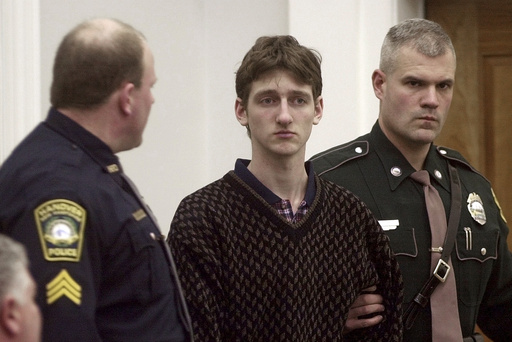
CONCORD, N.H. — A judge is seeking input from New Hampshire’s highest court regarding the case of Robert Tulloch, a man who, at the age of 17, pleaded guilty to the 2001 stabbing murders of two Dartmouth College professors, Half and Susanne Zantop. Tulloch is contesting his life sentence without the possibility of parole.
Tulloch, now 41, conspired with a friend to rob and kill individuals in a plot that included plans to escape to Australia afterward with the stolen money. The case is currently at a crossroads as Tulloch waits for a resentencing hearing. This follows a landmark 2012 ruling by the U.S. Supreme Court, which determined that imposing mandatory life sentences without the chance of parole on juvenile offenders is considered “cruel and unusual” punishment. The New Hampshire attorney general’s office has not provided a recommendation on what the new sentence for Tulloch should be, although it has not entirely ruled out the possibility of life without parole.
During a hearing in September, Tulloch’s attorney, Richard Guerriero, argued that the New Hampshire Constitution bars life-without-parole sentences. However, the state attorney general’s office contests this viewpoint. Both parties in the case, according to Judge Lawrence MacLeod, agree that if the constitution permits such a sentence, a judicial determination is necessary to establish that a juvenile is incapable of reform. Nevertheless, they differ on the approach to reach this conclusion and on the underlying facts justifying the sentence.
In his ruling, Judge MacLeod emphasized the complexity and importance of the constitutional questions raised in this case, noting that they have yet to be addressed by the New Hampshire Supreme Court. He has instructed both legal teams to prepare their arguments for consideration by the higher court. Guerriero expressed optimism about the importance of the case, stating that they believe it is essential for the Supreme Court to decide and are ready for further litigation.
Currently, at least 28 states have outlawed life sentences without parole for offenses committed by juvenile defendants; however, attempts to introduce similar reforms in New Hampshire have been unsuccessful. Additionally, Tulloch’s accomplice, James Parker, who was 16 at the time of the crimes, was paroled in June. Parker had pleaded guilty to second-degree murder in connection with Susanne Zantop’s death and served nearly the minimum duration of his 25-to-life sentence.
Parker agreed to testify against Tulloch, who initially intended to mount an insanity defense at trial but later opted to plead guilty to first-degree murder instead.
